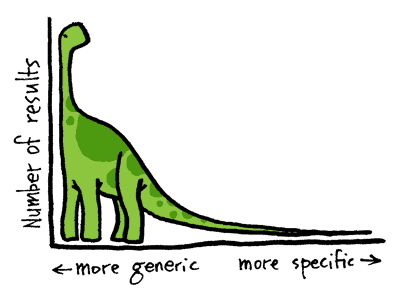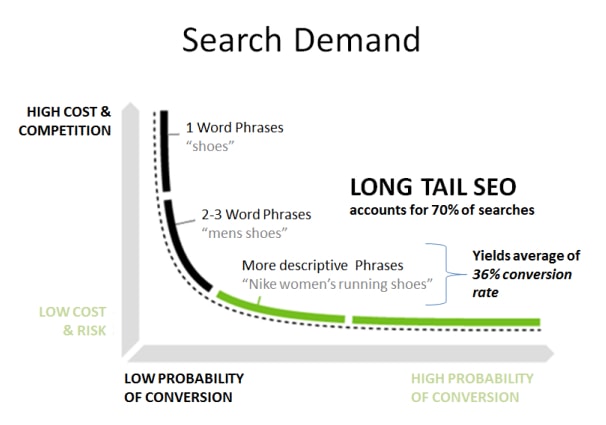What is Longtail SEO?
What exactly do we mean by “long tail” SEO?

Think about SEO as a dinosaur, as displayed on this graph. When you use fewer or more generic keywords (AKA Short tail), more results will be returned and there will be more competition for those top spots on the page. Because of this, short tail keyword phrases, when searched (ex. Asheville homes for sale) tend to favor the bigger real estate players like Zillow, Realtor.com, and others.
When more specific keywords are added (ex. Asheville homes for sale with a view of black mountain), more local businesses tend to show up higher on the search page, sometimes even with two different landing pages. This happens because the smaller business often have dedicated landing pages that correspond to the more specific keywords, whereas Zillow and others do not.
Making searches longer tail not only decreases competition in a search, but long tail phrases also have a 36% greater probability of conversion than their short tail counterparts. This should make sense: people who are searching with more specific keywords are more likely to actually buy a property than someone who just searches “homes for sale”.
Also, 92.43% of Google searches get searched 10 or fewer times per month. This means that the majority of Google searches are relatively specific, or long tail, so those keywords are what you should be including in your landing pages. In the age of information, people tend to know exactly what they want and will search for it specifically with long tail phrases. Because long tail searches are distinctly more common, our real estate clients tend to see more success in SEO when they focus on including these long tail keywords in their sites.
Want to learn more about how SEO can elevate your online presence for real estate? Contact us today for specific recommendations to grow your business.











